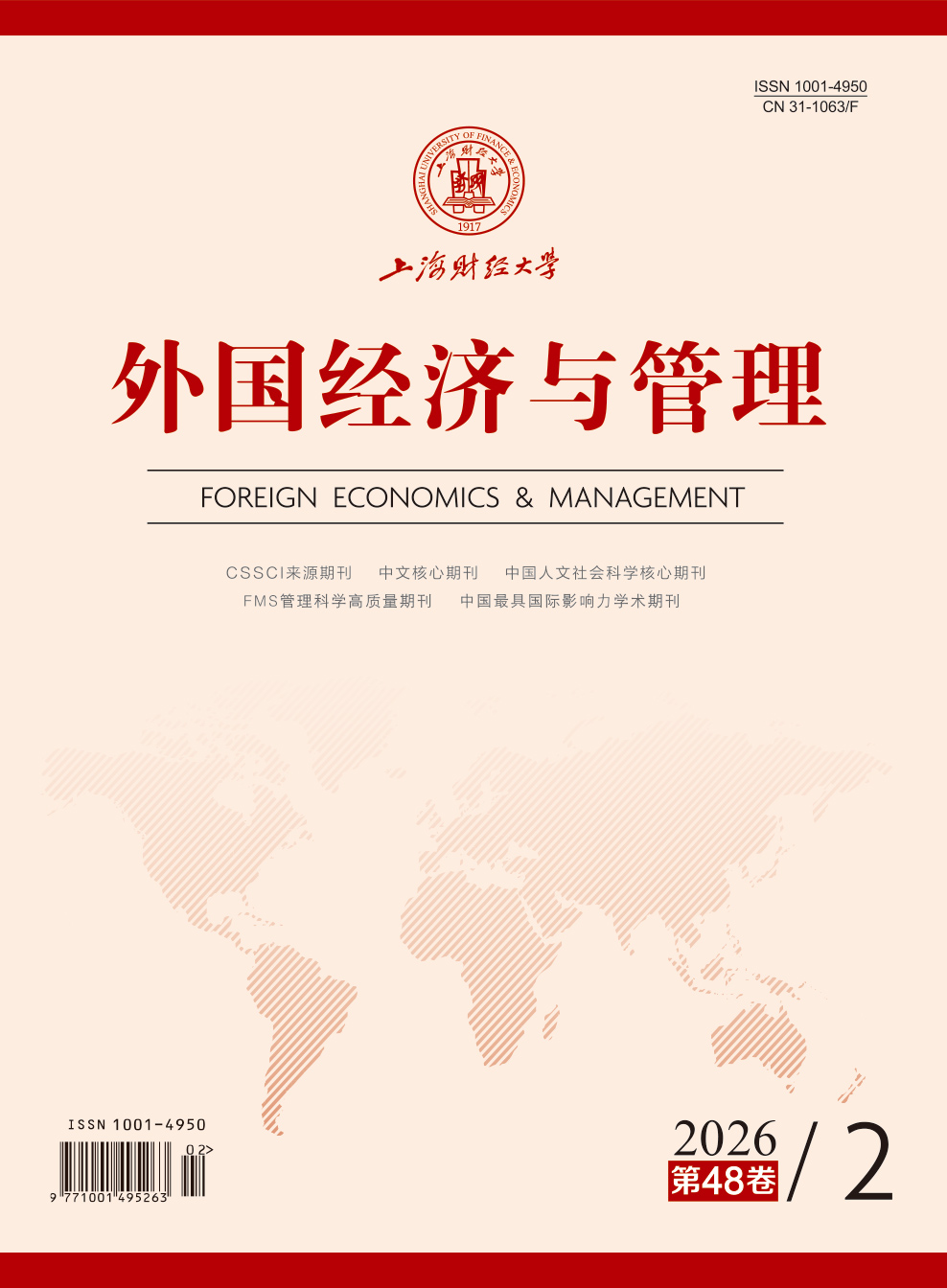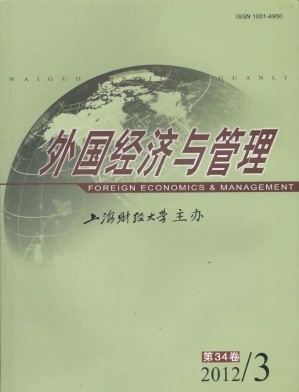三元知识运作管理模型构建与三元知识理论应用价值探析
外国经济与管理 2012 年 第 34 卷第 03 期, 页码:10 - 19
摘要
参考文献
摘要
三元知识理论的提出对于改变现有管理范式具有重要的意义,但这一理论及其应用价值尚未得到充分的重视。本文针对目前相关研究所存在的不足,在梳理知识及其管理研究现有文献的基础上,依据感性知识、理性知识和活性知识的基本分野与关联,构建了一个以实践与执行为支柱、以战略与制度为后盾、以价值观与理想为动力的三元知识运作管理模型,运用这个模型分析了三元知识理论在人力资源管理、知识管理和战略管理领域的应用价值,旨在从一个独特的视角揭示三元知识理论的巨大应用价值,并为三元知识管理理论的构建及其在组织情境下的应用提供实践依据和有价值的启示。
[1]Alvesson M and Willmott H.On the ideal of emancipation in management and organization studies[J].Academy of Ma-nagement Review,1992,17(3):432-461.
[2]Brown J S and Duguid P.Knowledge and organization:A social-practice perspective[J].Organization Science,2001,12(2):198-213.
[3]Brown B.Emotional intelligence:Implications for human re-source development[J].Otago Management Review,2005,3(1):21-36.
[4]Chen A N and Hwang Y.Knowledge life cycle,knowledge in-ventory,and knowledge acquisition strategies[J].Decision Sci-ences,2010,41(1):103-122.
[5]Cropanzano R,et al.The management of organizational Justice[J].Academy of Management Perspectives,2007,21(4):34-48.
[6]Doorewaard H and Benschop Y.HRM and organizational change:An emotional endeavor[J].Journal of Organizational Change Mangement,2003,16(3):272-286.
[7]DiMaggio P J and Powell W.The iron cage revisited:Institu-tional isomorphism and collective rationality in organizational fields[J].American Sociological Review,1983,48(2):147-160.
[8]Farrands C and Worth O.Critical theory in global political e-conomy:Critique?knowledge?emancipation?[J].Capital and Class,2005,29(1):43-61.
[9]Felin T and Hesterly W S.The knowledge-based view,nested heterogeneity,and new value creation[J].Academy of Man-agement Review,2007,32(1):195-218.
[10]Lepak D P,et al.Employment flexibility and firm perfor-mance:Examining the interaction effects of employment mode,environmental dynamism,and technological intensity[J].Journal of Management,2003,29(5):681-703.
[11]Mintzberg H.Rounding out the manager’s Job[J].Sloan Management Review,1994,36(1):11-26.
[12]Nonaka I and Takeuchi H.The knowledge creating company[M].New York:Oxford University Press,1995.
[13]Perrott B E.A strategic risk approach to knowledge manage-ment[J].Harvard Business Review,2007,50(1):523-533.
[14]Sharma A.Professional as agent:Knowledge asymmetry in a-gency exchange[J].Academy of Management Review,1997,22(3):758-798.
[15]Simonin B L.The importance of collaborative know-how:An empirical test of the learning organization[J].Academy of Management Journal,1997,40(5):1150-1174.
[16]Suddaby R,et al.Organizations and their institutional envi-ronments:Bringing meaning,values,and culture back intro-duction to the special research forum[J].Academy of Ma-nagement Journal,2010,53(6):1234-1240.
[17]Thomas R,et al.Managing organizational change:Negotia-ting meaning and power-resistance relations[J].Organization Science,2011,22(1):22-41.
[18]Tsai W.Knowledge transfer in intra-organizational net-works:Effects of network position and absorptive[J].Aca-demy of Management Journal,2001,44(5):996-1004.
[19]Dewey J.Reconstruction in philosophy[M].New York:Holt and Company,1920.
[20]Cope M.The secrets of success in coaching:12ways to excel as a coach[M].NY:Prentice Hall Business Publishing,2010.
[21]Yang B.Toward a holistic theory of knowledge and adult learning[J].Human Resource Development Review,2003,2(2):106-120.
[22]Haas,M and Hansen M T.Different knowledge,different benefits-Toward a productivity perspective on knowledge sharing in organizations[J].Strategic Management Journal,2007,28(6):1133-1153.
[23]Malhotra Y.Why knowledge management systems fail[M].Heidelberg:Springer Verlag,2004.
[24]Nag R,et al.The intersection of organizational identity,knowledge,and practice attempting strategic change via knowledge grafting[J].Academy of Management Journal,2007,50(4):821-847.
[25]Schultze U and Stabell C.Knowing what you don't know?Discourses and contradictions in knowledge management research[J].Journal of Management Studies,2004,41(4):549-573.
[26]Yang,B,et al.Holistic views of knowledge management models[J].Advances in developing Human Resource,2009,11(3):273-289.
[27]马克思,恩格斯.马克思恩格斯选集(第1卷)[M].北京:人民出版社,1995.
[28]屠兴勇,杨百寅.知识整体理论及其在管理领域中的应用[J].清华大学学报,2011,(6):125-135.
[2]Brown J S and Duguid P.Knowledge and organization:A social-practice perspective[J].Organization Science,2001,12(2):198-213.
[3]Brown B.Emotional intelligence:Implications for human re-source development[J].Otago Management Review,2005,3(1):21-36.
[4]Chen A N and Hwang Y.Knowledge life cycle,knowledge in-ventory,and knowledge acquisition strategies[J].Decision Sci-ences,2010,41(1):103-122.
[5]Cropanzano R,et al.The management of organizational Justice[J].Academy of Management Perspectives,2007,21(4):34-48.
[6]Doorewaard H and Benschop Y.HRM and organizational change:An emotional endeavor[J].Journal of Organizational Change Mangement,2003,16(3):272-286.
[7]DiMaggio P J and Powell W.The iron cage revisited:Institu-tional isomorphism and collective rationality in organizational fields[J].American Sociological Review,1983,48(2):147-160.
[8]Farrands C and Worth O.Critical theory in global political e-conomy:Critique?knowledge?emancipation?[J].Capital and Class,2005,29(1):43-61.
[9]Felin T and Hesterly W S.The knowledge-based view,nested heterogeneity,and new value creation[J].Academy of Man-agement Review,2007,32(1):195-218.
[10]Lepak D P,et al.Employment flexibility and firm perfor-mance:Examining the interaction effects of employment mode,environmental dynamism,and technological intensity[J].Journal of Management,2003,29(5):681-703.
[11]Mintzberg H.Rounding out the manager’s Job[J].Sloan Management Review,1994,36(1):11-26.
[12]Nonaka I and Takeuchi H.The knowledge creating company[M].New York:Oxford University Press,1995.
[13]Perrott B E.A strategic risk approach to knowledge manage-ment[J].Harvard Business Review,2007,50(1):523-533.
[14]Sharma A.Professional as agent:Knowledge asymmetry in a-gency exchange[J].Academy of Management Review,1997,22(3):758-798.
[15]Simonin B L.The importance of collaborative know-how:An empirical test of the learning organization[J].Academy of Management Journal,1997,40(5):1150-1174.
[16]Suddaby R,et al.Organizations and their institutional envi-ronments:Bringing meaning,values,and culture back intro-duction to the special research forum[J].Academy of Ma-nagement Journal,2010,53(6):1234-1240.
[17]Thomas R,et al.Managing organizational change:Negotia-ting meaning and power-resistance relations[J].Organization Science,2011,22(1):22-41.
[18]Tsai W.Knowledge transfer in intra-organizational net-works:Effects of network position and absorptive[J].Aca-demy of Management Journal,2001,44(5):996-1004.
[19]Dewey J.Reconstruction in philosophy[M].New York:Holt and Company,1920.
[20]Cope M.The secrets of success in coaching:12ways to excel as a coach[M].NY:Prentice Hall Business Publishing,2010.
[21]Yang B.Toward a holistic theory of knowledge and adult learning[J].Human Resource Development Review,2003,2(2):106-120.
[22]Haas,M and Hansen M T.Different knowledge,different benefits-Toward a productivity perspective on knowledge sharing in organizations[J].Strategic Management Journal,2007,28(6):1133-1153.
[23]Malhotra Y.Why knowledge management systems fail[M].Heidelberg:Springer Verlag,2004.
[24]Nag R,et al.The intersection of organizational identity,knowledge,and practice attempting strategic change via knowledge grafting[J].Academy of Management Journal,2007,50(4):821-847.
[25]Schultze U and Stabell C.Knowing what you don't know?Discourses and contradictions in knowledge management research[J].Journal of Management Studies,2004,41(4):549-573.
[26]Yang,B,et al.Holistic views of knowledge management models[J].Advances in developing Human Resource,2009,11(3):273-289.
[27]马克思,恩格斯.马克思恩格斯选集(第1卷)[M].北京:人民出版社,1995.
[28]屠兴勇,杨百寅.知识整体理论及其在管理领域中的应用[J].清华大学学报,2011,(6):125-135.
引用本文
屠兴勇. 三元知识运作管理模型构建与三元知识理论应用价值探析[J]. 外国经济与管理, 2012, 34(3): 10–19.
导出参考文献,格式为:
下一篇:技术创新收益机制研究前沿探析





 8725
8725  466
466

